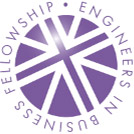Student Enterprise Fund: Concept to Creation – 2023
Back to Competitions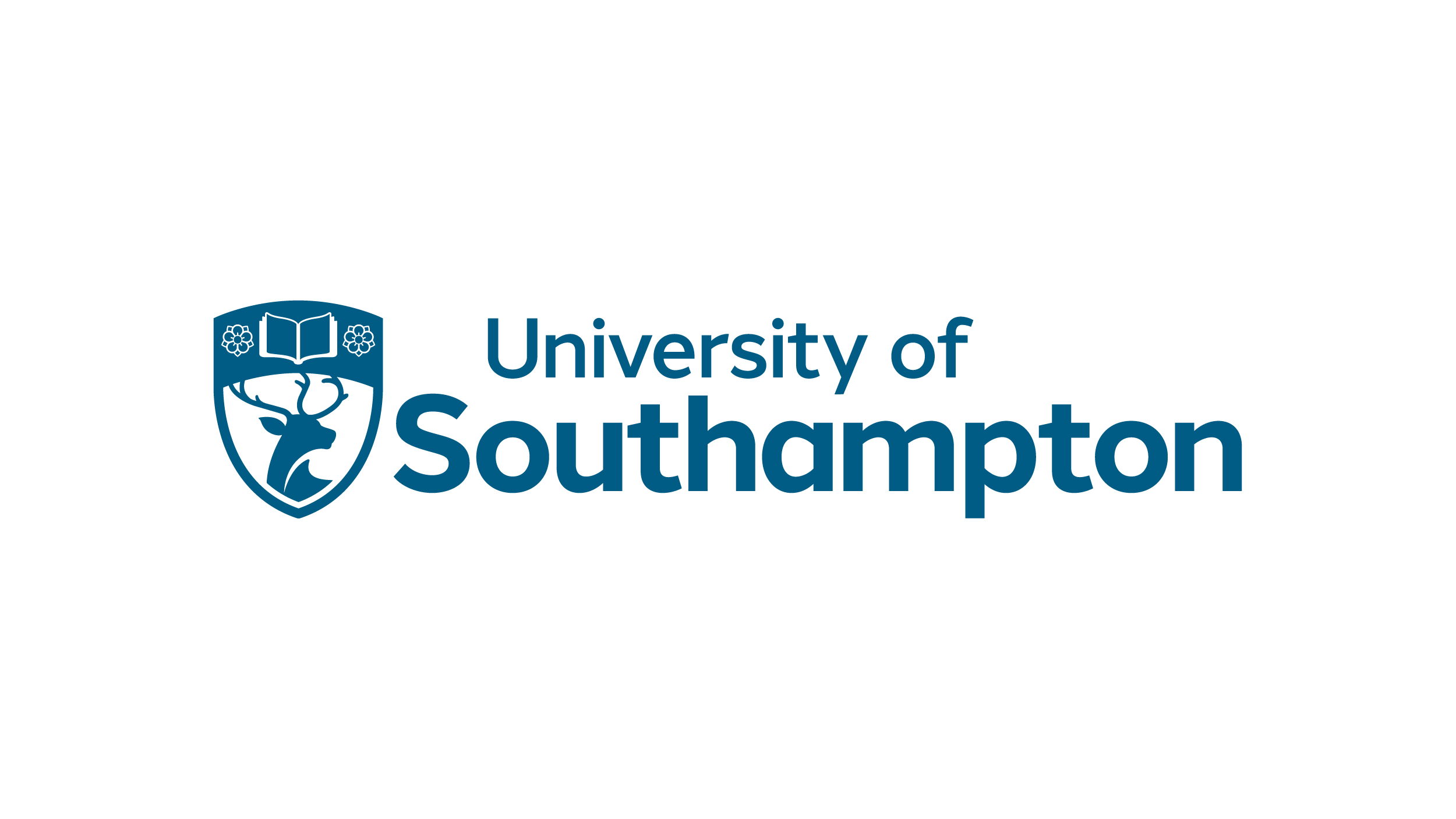 | The University of Southampton runs prize fund competitions for students wanting to develop a business or social enterprise, with the Engineers in Business providing a component of this funding to students from Engineering & Physical Sciences. The university also gave students the opportunity to work with a design agency to develop a physical prototype of their innovation. |
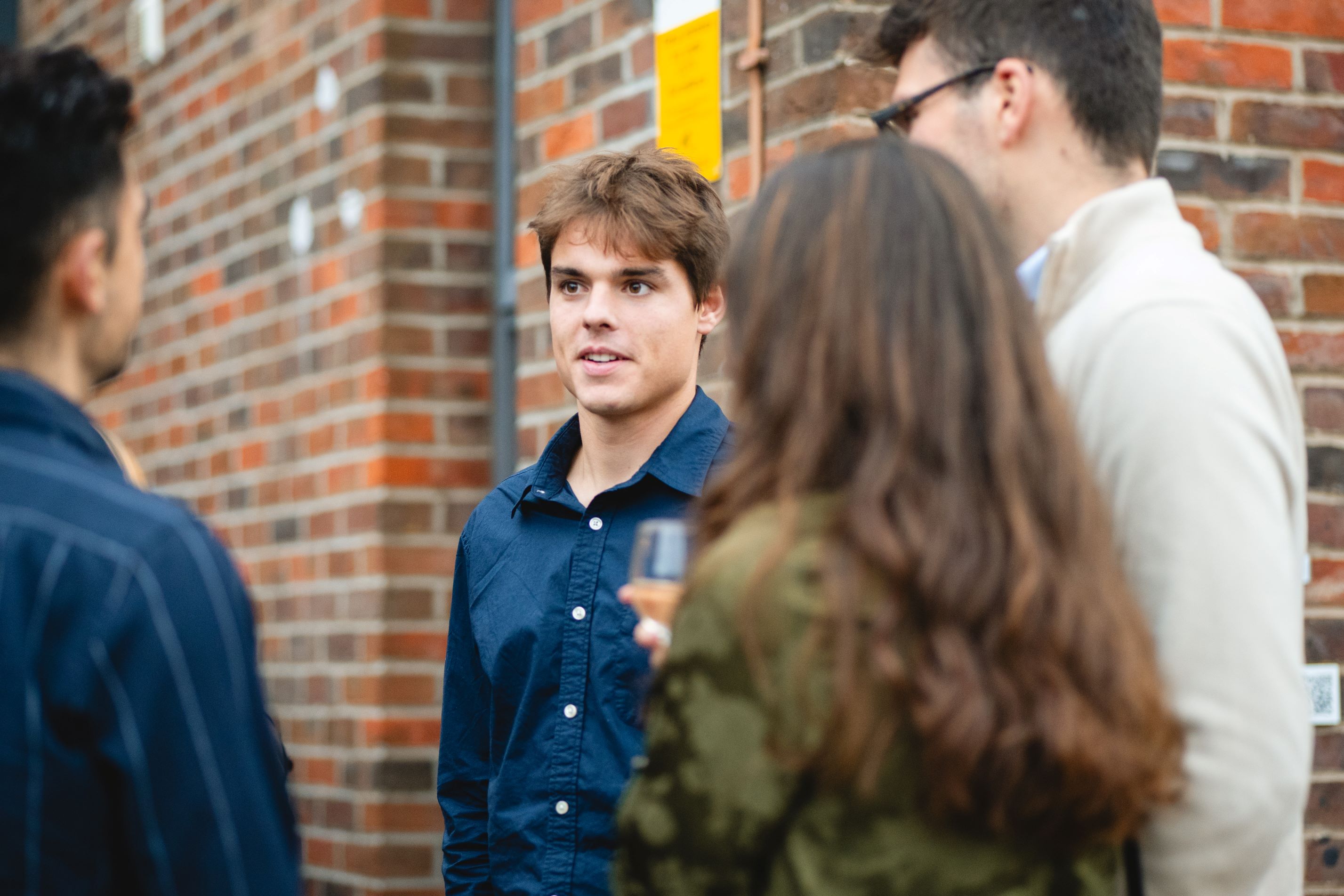
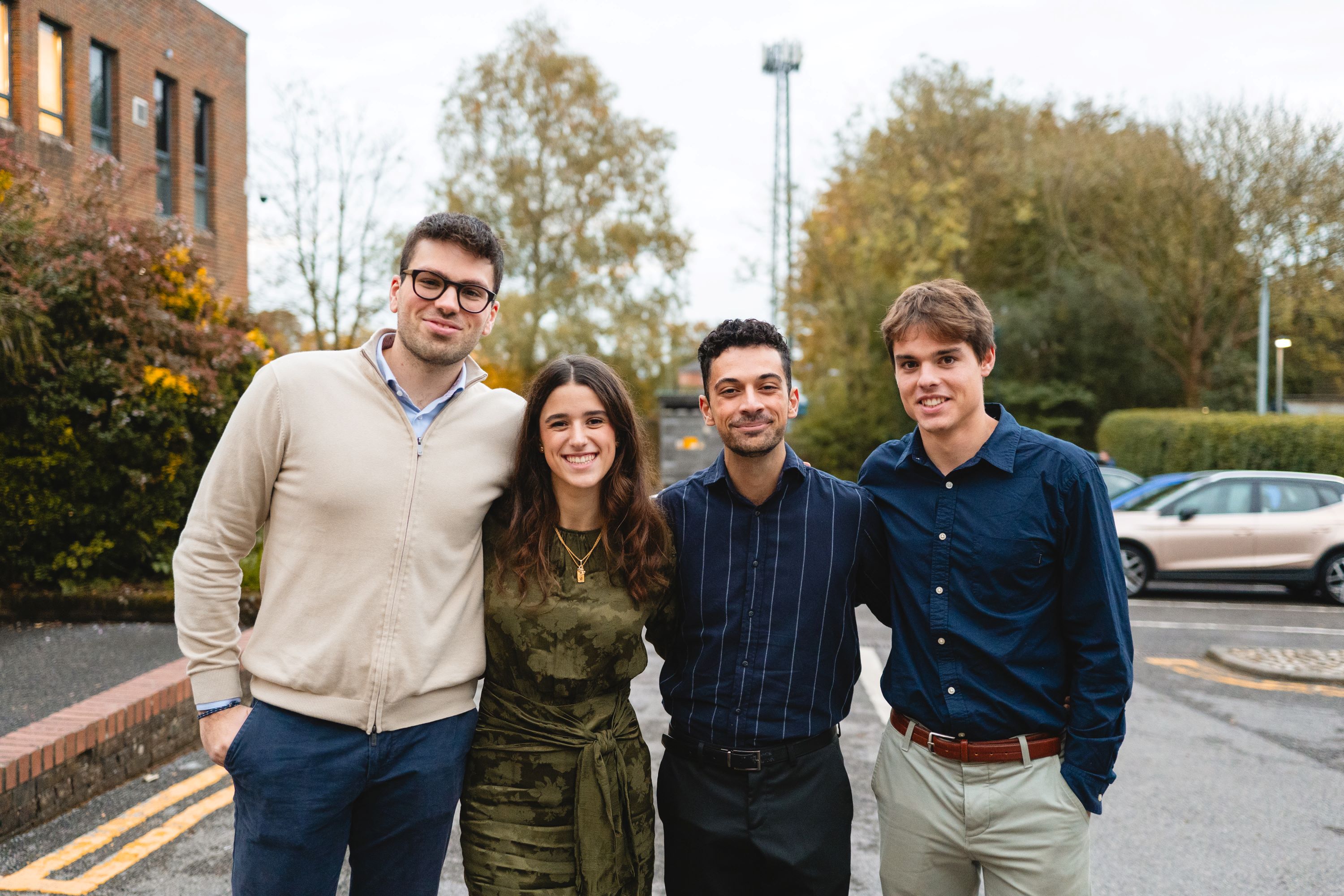
First place: Meta Futura Aerospace
The Meta Futura Aerospace team is enhancing space exploration through its simple and cost-effective systems. Their Meta Flex system is a ground breaking attitude and orbit control system, designed to transform spacecraft control. Meta Flex redefines precision with its friction free design, replacing traditional eight thruster systems with just two thrusters. This innovation unlocks new spacecraft abilities, simplifies design, reduces costs, and broadens access to advanced space missions.
Students:
- Pedro Rodriguez-Lopez – Aeronautics and Astronautics
- Fabrizio Pisani – Aerospace, Aeronatical and Astronautical Engineering
- Elena Carulla – Aeronatics and Astronautics
- Nestoras Papageorgiou – Aerospace, Aeronatural and Astronautical Engineering
- Marcin Badowski – Aeronatucis and Astronautics with Spacecraft Engineering, Aerospace, Aeronautical and Astronautical Engineering
Prize awarded: £1,500
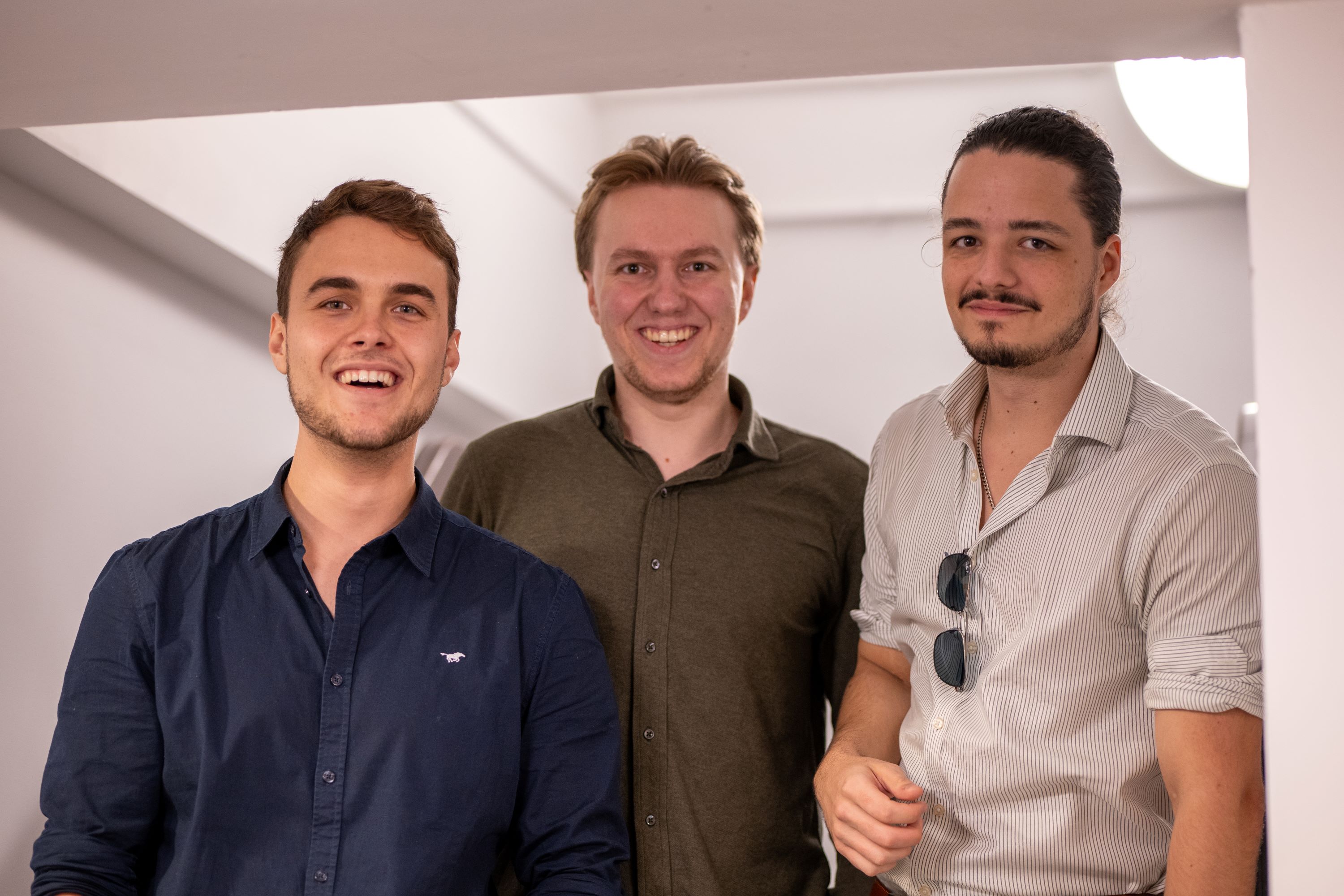
Second place: WayWay
The WayWay team has created a mobile app that aims to revolutionise trip planning. It uses AI-powered technology to give travellers the best places and events to go to for any occasion, all based on preferences, ranging from going on relaxing sightseeing trips and exploring local culture to help people find top party spots. WayWay provides users with up-to-date information about opening times, prices, best times to go and much more. The app helps also helps users to discover discounts on hotels and flights and secure the best deals. Users also plan trips together with friends on the app, track flight times, tickets, hotel stays and country entry requirements.
Students:
- Basil Batov – Electronic Engineering with Artificial Intelligence
- Tomas Kopunec – Computer Science
- Denis Bobrovskiy – Electronic Engineering
Prize awarded: £1,000
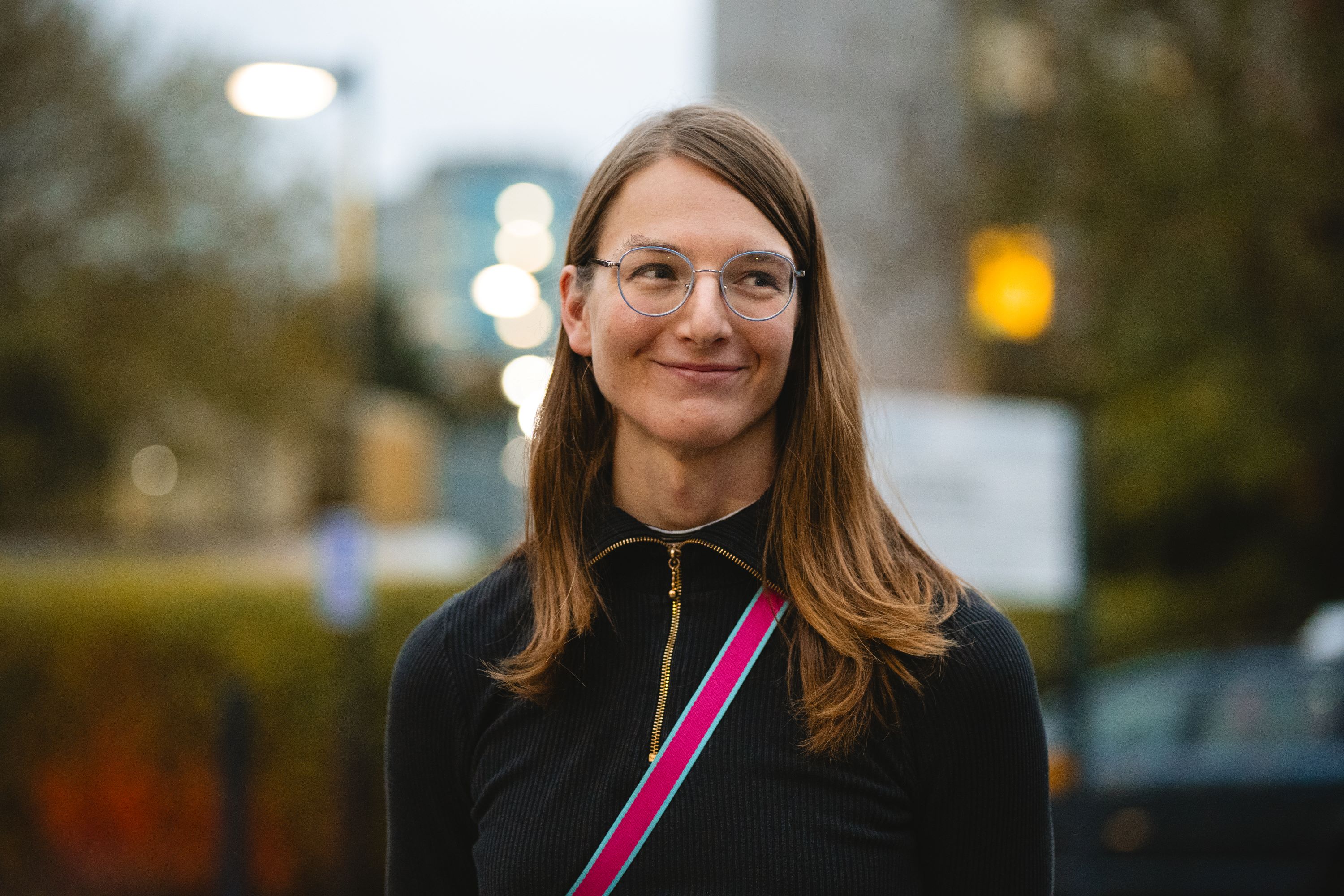
Third place: Aerogard
AeroGard uses various pieces of technology to monitor the ambient environment. It combines a compact monitor, temperature sensor and relative humidity sensor with a microcontroller to read data and transmitv data to a companion app using Bluetooth. The app then reads the phone’s location, anonymises any identifying information and transmits the location, pollution and RH/T data to cloud servers. Once on the servers a machine learning algorithm trained in a lab improves the quality of the data by compensating for the effects of RH/T and displays the pollution data on a map. Over time, AI algorithms can learn pollution patterns to begin to provide insights on the best times to travel and when to avoid exerting activities. Users can create accounts where they can register their pollution sensitivities to be given personalised recommendations based on their specific conditions and requirements.
Student:
- Willow Herring – Electronic and Electrical Engineering
Prize awarded: £1,000 (part-funded by EIBC)
Positive feedback
The partnership between the Engineers in Business Fellowship and the University of Southampton plays a crucial role in enabling us to engage with entrepreneurial students within the Engineering schools and offer them essential financial support to jumpstart their ideas. Through our Student Enterprise competitions, students in Engineering-related fields of study have the opportunity to secure EIBC funding, which provides them with the necessary resources to turn their ideas into reality.
Tom Simmonds
Head of Student Enterprise & Events
University of Southampton
